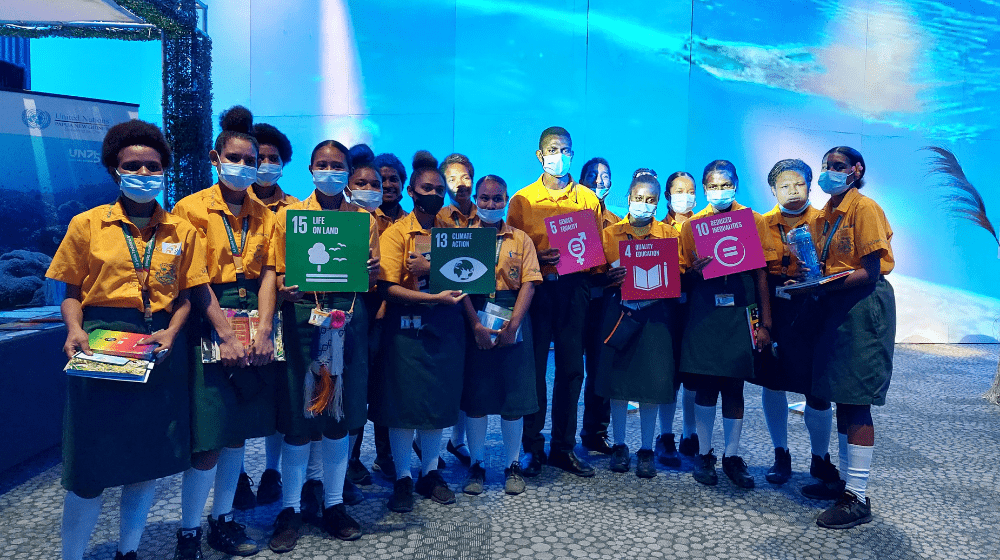Ahead of World Environment Day on June 5, UNFPA has joined UN agencies in support of the Protected Areas Forum, a week long conference hosted by the Conservation and Environment Protection Agency and UNDP that aims to fulfil mandates and strengthen policies to protect the country’s abundant natural assets into the future to benefit all life and future generations.
Utilising these benefits means understanding the needs of today’s youth, a generation that holds significant economic potential for Papua New Guinea. The ‘demographic dividend’ is the economic growth potential of a nation when the working age population is greater than the non-working population. With 60% of the population under 24, Papua New Guinea has great economic potential as today’s children and adolescents approach working age.
But this opportunity can be missed. Realising a demographic dividend requires multiple investments. The most essential are building the capabilities of people and ensuring their rights and freedoms to achieve their potential. Young people need the chance to gain the education and experience to succeed in a competitive global workplace, which demands more skills, education and technical expertise than ever before.
Without quality and inclusive education, healthcare, and access to employment, today's youth will not be able to contribute to a prosperous economy. If employment opportunities are limited - by inaccessible workplaces, discriminate hiring practices, and social norms that exclude people from employment - families will not have the full benefits of the demographic dividend.
On Tuesday, UNFPA’s Sharon Tanda and Rachel Donovan spoke with students about how UNFPA works with sister UN agencies to improve livelihood through ending gender-based violence and the important role youth play in changing attitudes and behaviours towards violence. If attitudes that perpetuate violence continue, the economic potential of today’s youth will be greatly reduced.
Similarly, if resources are not effectively managed and vulnerable areas not protected, future generations will not benefit from the country’s vast natural assets. If efforts to mitigate the impacts of climate change are not integrated into planning, progress to advance the rights and livelihoods of vulnerable groups can be lost. The Protected Areas Forum is a platform for ensuring that the legislative and institutional measures to protect vulnerable areas are functioning. With this year being the Forum’s second national event, important conversations can be advanced and ongoing challenges addressed.
Meaningful youth engagement and data-driven planning can contribute to effective intergenerational dialogue on protecting natural assets and on mitigating environmental and climatic changes, so that today’s youth have a say in the world which will be left to them and the conditions in which they will live.
UNFPA and Population Data
UNFPA is helps countries understand populations based on census and population surveys, including age-structure patterns and projections, current rates of child marriage, unmet need for family planning, coverage and access to sexual and reproductive health and rights, and sex differentials in schooling, among other factors. In Papua New Guinea, we are working with the National Statistical Organisation to complete a Socio-Demographic and Economic Survey that will provide updated information on health, education, and characteristics of 5,000 households.


